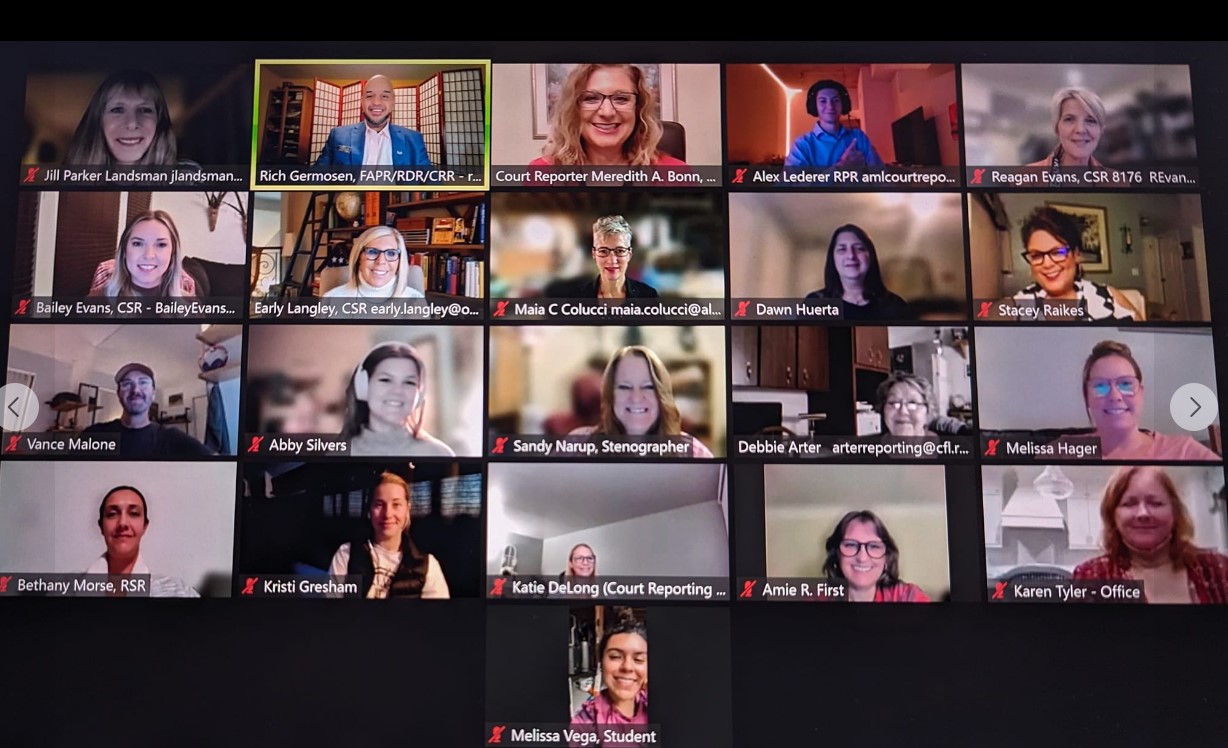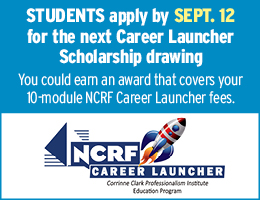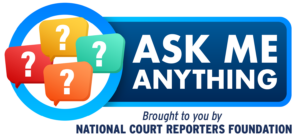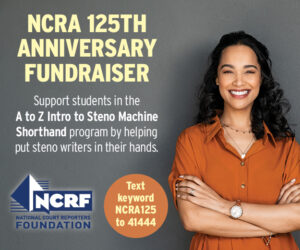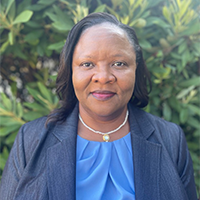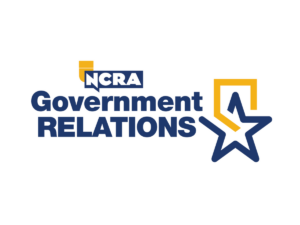By Jill Parker Landsman
Want to be your own boss? Want to choose your clients? Care about your work-life balance? Can you juggle a budget, taxes, and income spreadsheets?
Nodding or thinking, yes? Then freelance court reporting might be right for you.
The perks of freelancing were shared by panelists at the third National Court Reporters Foundation (NCRF) Ask Me Anything ZoomUp: Focus on Freelancers on Oct. 30. The event attracted 52 registrants. One fact echoed by most freelance panelists: Even the smallest freelance operation is a tax-paying business entity, and financial arrangements for freelance work take planning, time, and budgeting.
NCRF Chair-Elect and NCRF Ask Me Anything Co-Chair Meredith Bonn, RPR, CRR, an official reporter and freelancer from Webster, N.Y., welcomed attendees, introduced Task Force members, NCRF Trustees, and panelists. Maia Colucci, from Rochester, N.Y., an owner of Alliance Court Reporting, explained that she bought the agency where she had worked. As a firm owner she sees the need from both sides regarding the support court reporters need.
The moderator asked, “What are the requirements needed to embark on this profession?” and panelists offered the different requirements in their states.
In New York state, Colucci said, you either find an agency that you can prove yourself to or put your shingle out and find somebody to hire you. “It is a little easier to have the support of an agency.” As an agency owner, she stated that she understood the “needed support at the front end and the back end.” She said that in New York court reporters need to work hard, graduate from school, and then can work right away as the state does not require certification or licensure.
Alex Lederer, RPR, started his freelance business AML Court reporting in 2021. He now lives in Florida, citing that he is the “new kid on the block.” In Florida, Lederer explained there are also no mandatory certifications, but he advised people to earn their Registered Professional Reporter (RPR) or Registered Skilled Reporter (RSR) certifications. “If the agency you work for has a notary, then the witness can be sworn in that state if you work remotely,” he explained.
According to Early Langley, RMR, a freelance court reporter from Danville, Calif., her state requires that court reporters must earn the Certified Shorthand Reporter certification, which is governed by the state’s reporters board.
Texas does require state certification, noted Bailey Evans, a student from Houston, Texas, including passing three speed tests. Once practitioners pass those tests and pass a background check, then there is a portal to login to find assignments, she explained.
In New Jersey court reporters must be certified, said Rich Germosen, FAPR, RDR, CRR, a freelance agency owner from New Brunswick. “I think everyone should be going for their RMR (Registered Merit Reporter),” he said. “People spoke slower in 1992. As years go on, people are going to be speaking faster. We should all be trying to get our RMR because we can write faster. Do not stop until you get that RMR minimum and preferably the RDR.” Passing that test may take four or five years, he cautioned.
Moderator Bonn applauded Germosen’s advocacy for practicing every day. Germosen shared his discipline to never miss a day of practice. “I took a two-week trip to Italy, and I took my machine,” Germosen said. “I said, are you going to regret taking it or not taking it? I took it day by day. I was successful. I had my streak intact.”
Colucci added that she wished she had been more disciplined about practicing when first she started out in the profession. “I needed Rich,” she said. “Our job changes every single day with every single job. You will need construction [lingo] on this job, matrimonial on this one, an appendectomy on this one. Every single day you will learn something new. You need to assimilate that, and your steno needs to adapt,” she added.
Assembling the transcript was a challenge for Lederer during his formative, learning stages, as school did not train him for that part of the work. Bonn reminded attendees about NCRF’s Career Launcher program that is available to help fill in the gap with training on how to prepare a transcript and the processes for all sorts of situations in a deposition with real-world freelance job training.
Evans said she did hear her teacher explain what to expect at depositions but noted that she needed more. “There is never really a rule book to know what to expect every day,” she said. “One of the most important things is to find somebody you can text when you do not know what to expect. When you come across those hiccups, you will then know what to expect.”
The moderator asked panelists about their technique to interrupt during a deposition. “I am very old fashioned when it comes to interrupting,” said Ron Cook, FAPR, RDR, CRR, CRC, a freelancer and agency owner from Redmond, Wash. “You do not have to say ‘I am sorry’ but that is my style. I am not really sorry but that is the way I have been from day one. It is our job to interrupt. [That is] the real heart of reporters being the guardians of the record.”
Rules for going off the record were also discussed. “A reporter can ask to go off the record. I have asked, and it has never been a problem,” Langley said. She has requested to go off the record, for example, when she experienced an audio issue during remote work. “I say ‘you ran away from me. Let us start again.’”
When discussing deposition preparations, both Germosen and Lederer said that they use their notepads to record names, location, case number, agency name, date, and law firm names. Germosen tries to obtain the information prior transcripts to learn commonly used words and names. “You can see who showed up the last time,” he said. “I skim through the word index. Google the ID number, or the case.”
Having a flexible schedule was also noted as a top benefit for these freelancers. Setting aside tax funds from each gross payment was advised.
Freedom to make her own schedule was important to Reagan Evans, RMR, CRR, CRC, a freelancer from Ontario, Calif., as she raised her children. “I appreciated the flexibility when I had young ones,” she said. “You have to be very disciplined. No one is over your shoulder telling you what to do next, keep track of who you have billed, when you have been paid, follow up on invoices not paid. I recommend a health savings account and retirement savings. You pay taxes. Get into a routine,” she added.
“There is no pay stub at the end of each week,” said Colucci. “I got my own accountant,” she said. “I graduated and I got an accountant. It is too complicated. You need better than H&R Block. Our job is so different than what everybody else does.”
Having six children meant that Cook needed a fluid work schedule. “I could go to events at any time on any day,” said Cook. “Freedom is just incomparable. I never was an employee. When you are an official in court, there is a lot of work over and above the 9 to 5. I always wanted to be my own boss. I put away 30 percent now. It took me several years to be disciplined to do that.” He recommends depositing at least 25, 30 or 35 percent per check in an account just for taxes.
Tips for retirement preparation were shared along with the importance of contributing to a 401K account. Investing in one’s health and professionalism was widely advised.
View the full video of the event.
Register for the Ask Me Anything ZoomUp: Focus on Captioners on Nov. 28, 2023, at 8 p.m.
Jill Parker Landsman is the NCRF Manager. She can be reached at jlandsman@ncra.org.
